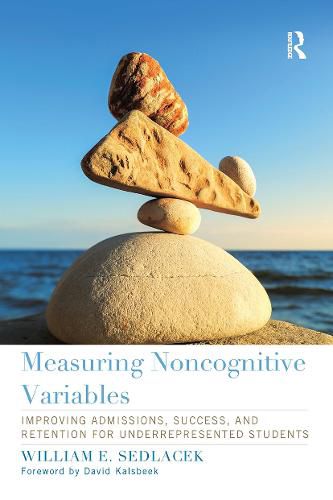Readings Newsletter
Become a Readings Member to make your shopping experience even easier.
Sign in or sign up for free!
You’re not far away from qualifying for FREE standard shipping within Australia
You’ve qualified for FREE standard shipping within Australia
The cart is loading…






Measuring Non-Cognitive Variables: Improving Admissions and Post Enrolment Services in Higher Education brings together theory, research and practice related to Non-cognitive variables in a practical way by using assessment methods provided at no cost. Non-cognitive variables have been shown to correlate with the academic success of students of all races, cultures and backgrounds. Non-cognitive variables include personal and social dimensions, adjustment, motivation, and student perceptions, rather them the traditional verbal and quantitative areas (often called cognitive) typically measured by standardized tests.
Key Features include: models that raise concepts related to innovation, diversity and racism in proactive ways; examples of admission and post-enrolment applications that show how schools and programs can use non-cognitive variables in a variety of ways; additional examples from foundations, associations, and K-12 programs; and an over view of the limitations of traditional assessment methods such as admission tests, grades, and courses taken.
$9.00 standard shipping within Australia
FREE standard shipping within Australia for orders over $100.00
Express & International shipping calculated at checkout
Measuring Non-Cognitive Variables: Improving Admissions and Post Enrolment Services in Higher Education brings together theory, research and practice related to Non-cognitive variables in a practical way by using assessment methods provided at no cost. Non-cognitive variables have been shown to correlate with the academic success of students of all races, cultures and backgrounds. Non-cognitive variables include personal and social dimensions, adjustment, motivation, and student perceptions, rather them the traditional verbal and quantitative areas (often called cognitive) typically measured by standardized tests.
Key Features include: models that raise concepts related to innovation, diversity and racism in proactive ways; examples of admission and post-enrolment applications that show how schools and programs can use non-cognitive variables in a variety of ways; additional examples from foundations, associations, and K-12 programs; and an over view of the limitations of traditional assessment methods such as admission tests, grades, and courses taken.